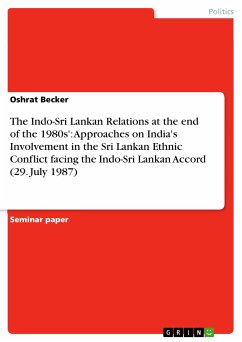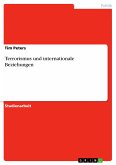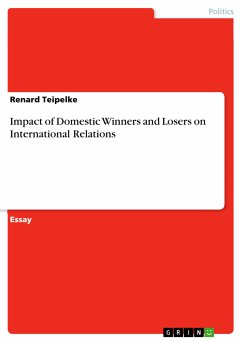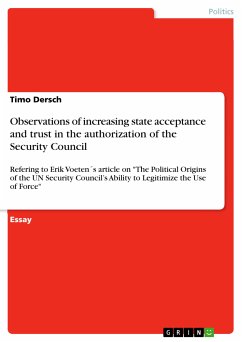Essay from the year 2006 in the subject Politics - General and Theories of International Politics, London School of Economics (Department of International Relations), language: English, abstract: Since the behaviourist turn of the 1960s, questions concerning the appropriateness and desirability of a positivist research agenda have been at the forefront of meta-methodological debate within the social sciences. The evolving 'science wars' between positivists and normativists have also presented enormous challenges to the epistemological identities and professional self-images of scholars working in the academic field of International Relations (IR). Whereas positivists maintain that the overarching aim of science is the experimentally guided explanation of empirical phenomena under 'covering laws', normativists and traditionalists hold that social scientists cannot — and, in fact, should not — emulate the causal models of the natural sciences. According to this view, it is virtually impossible to study the influences of distinct variables in complex social interactions, and statistical aggregation merely obscures the fact that the true 'causes' of events are rarely obvious in the social world. Hence, the purpose of political and social research ought to be a desire to understand processes 'from within' rather than to explain them 'from outside'. Yet the traditionalist critique of social scientific positivism did not imply that positivists would be entirely oblivious to the importance of norms in international life. IR does not only deal with descriptive, but with political (and, ultimately, prescriptive) aspects of the social world. Thus, it might appear worthwhile to ask: how scientific are so-called 'scientific' (positivist) approaches to the study of IR — if their theoretical premises and empirical achievements are taken at face value and judged by their own standards of 'scientific' neutrality and precision? To answer this question, I will first describe the spread of positivist thought in IR. Secondly, I will outline in how far two research programmes which have been heavily influenced by positivist method — game theory and the democratic peace thesis — have challenged traditionalist approaches, and whether they can be regarded as 'truly scientific'. Drawing on these insights, I will conclude that, on closer inspection, positivist research methods in IR do lack a perfectly 'scientific' status, although they have made important contributions to the academic field.
Bitte wählen Sie Ihr Anliegen aus.
Rechnungen
Retourenschein anfordern
Bestellstatus
Storno









